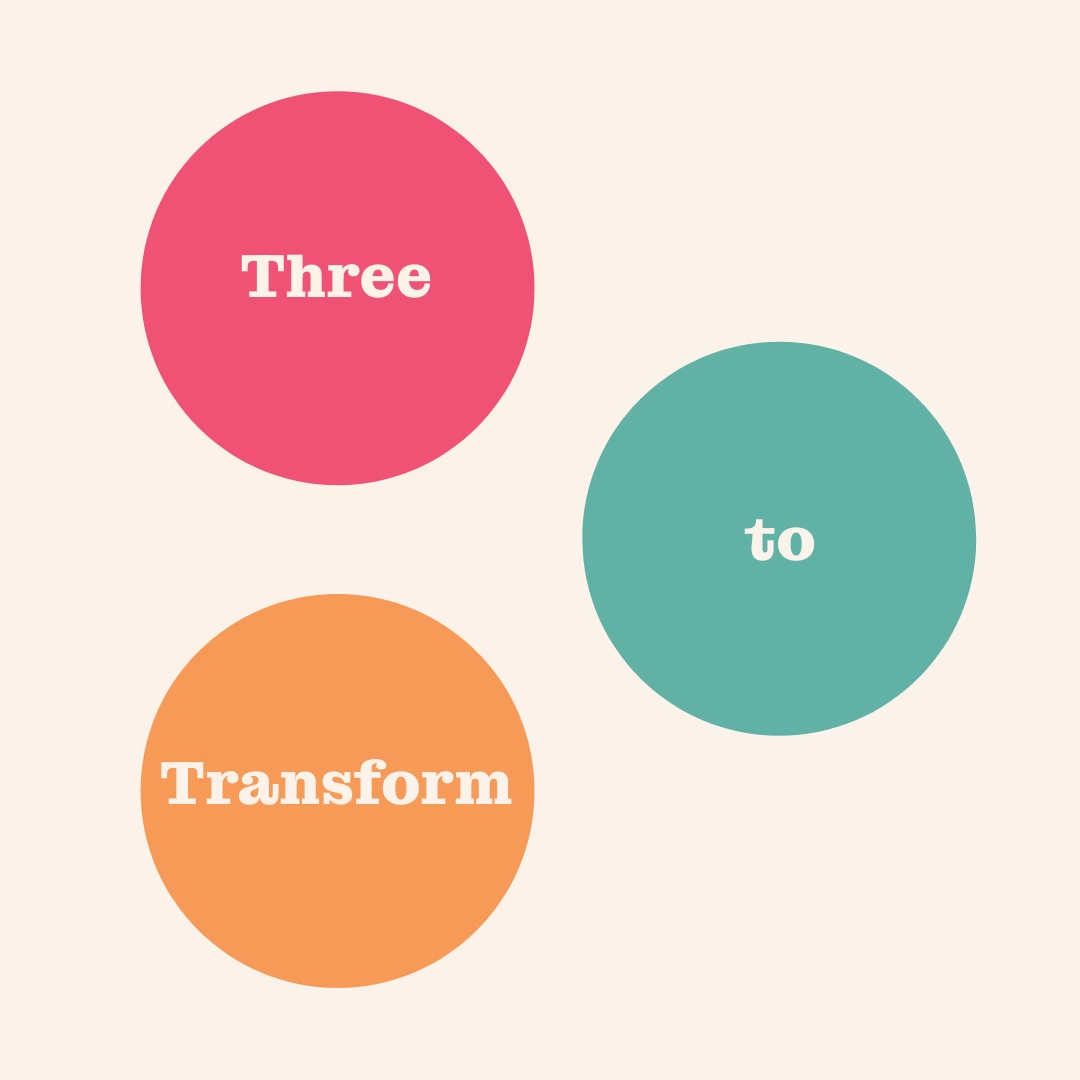Three (Skills) to Transform (Culture)
At the heart of our violence prevention work is the belief that cultural transformation begins with skill-building. The Three to Transform Model identifies three foundational skills—empathy, critical thinking, and social responsibility— as essential to preventing all forms of violence, including human trafficking and exploitation. These aren’t just character traits; they are teachable and learnable tools that help young people navigate relationships, question harmful norms, and take action to create safer, more just communities.
We have intentionally and thoughtfully woven these three skills throughout our lesson plans, activities, and classroom materials. Each one plays a unique and interconnected role in prevention and culture change.
Empathy
Empathy is the ability to understand and share the feelings and experiences of others. It is the foundation of respectful relationships and a key driver of prosocial behavior. When young people practice empathy, they are better able to recognize harm, understand different perspectives, and build deeper connections rooted in care and consent.
In the context of violence prevention, empathy helps:
- Reduce dehumanization and “othering,” which often underlie exploitation and abuse
- Increase compassion for those who have experienced harm, replacing victim-blaming with support
- Build inclusive communities where people look out for one another and intervene when something feels wrong
By centering empathy, we support students in developing the emotional intelligence necessary to reject violence and foster safety for themselves and others.
Critical Thinking
Critical thinking empowers students to ask questions, evaluate information, and challenge harmful messages and systems. In a world filled with media, misinformation, and social pressure, this skill is crucial for recognizing red flags, understanding manipulation, and disrupting patterns of harm.
In the context of violence prevention, critical thinking helps:
- Unpack myths and stereotypes that normalize or excuse violence
- Identify grooming tactics, coercion, and digital manipulation
- Evaluate power dynamics in relationships and recognize when boundaries are being crossed
By nurturing this skill, we equip youth to think beyond surface-level messaging, resist harmful narratives, and make informed, safe decisions.
Social Responsibility
Social responsibility is the belief that we each have a role to play in creating a safer and more equitable world. This skill helps young people understand their impact on others and inspires them to act in ways that promote dignity, justice, and safety for all.
In the context of violence prevention, social responsibility helps:
- Encourage bystander intervention and peer support
- Normalize speaking up, setting boundaries, and holding others accountable with care
- Promote collective responsibility and challenge cultures of silence and complicity
By cultivating social responsibility, we shift the burden of prevention away from individuals alone and toward a shared commitment to safety and equity.
By centering the Three to Transform Model, we offer an accessible entry point into the work of violence prevention. The details and data surrounding human trafficking can often feel overwhelming or intimidating, especially for those without specialized training. But you don’t need to be an anti-trafficking expert to make a meaningful impact. When families, educators, and community members focus on building empathy, critical thinking, and social responsibility, they are already laying the groundwork for prevention. These skills empower youth to recognize harm, challenge injustice, and make safer choices, no matter what specific topic is being discussed. Through the Three to Transform Model we aren’t just preventing violence; we’re building a future rooted in kindness, consent, and collective care.

